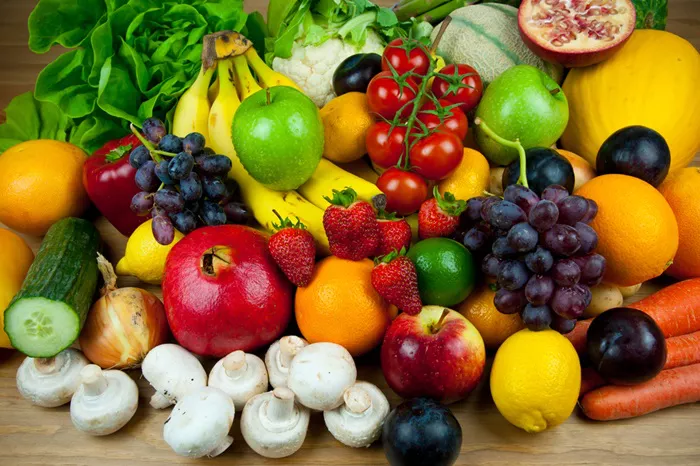Walking through your local market reveals a variety of foods that not only support heart health and strengthen bones and muscles but also play a role in preventing skin cancer.
Dr. Tanya Nino, a double board-certified dermatologist and director of the melanoma program at Providence St. Joseph Hospital in Burbank, California, emphasizes the importance of antioxidants in this fight. “Some studies indicate that antioxidants like vitamins A, C, E, carotenoids, and selenium may help prevent certain skin cancers by neutralizing free radicals—unstable molecules that can damage DNA in our cells.”
The Importance of Targeting Cancer at the Cellular Level
Dr. Caren Campbell, a dermatologist in San Francisco, explains the significance of addressing cancer at its cellular roots. “Cancer arises from the uncontrolled division of specific cells,” she notes. In skin cancer, this involves the excessive growth of skin cells, with melanoma originating from melanin-producing melanocytes and non-melanoma skin cancer stemming from epidermal cells.
Skin cancer remains the most prevalent cancer in the U.S., affecting one in five Americans by age 70, according to the Skin Cancer Foundation. The most common types—basal and squamous cell skin cancers—originate in the epidermis, as reported by the American Cancer Society.
Regular application of a broad-spectrum sunscreen with SPF 15 or higher is crucial for reducing skin cancer risk, as is incorporating antioxidant-rich foods into your diet.
Key Antioxidants and Their Sources
Vitamins A, C, and E: Research indicates that a higher intake of dietary vitamin A can lower the risk of cutaneous squamous cell carcinoma. Additionally, vitamins C and E aid in skin cell repair after oxidative stress.
Dr. Campbell underscores the cellular impact of our dietary choices. “Foods that reduce DNA damage are essential in cancer prevention,” she states.
Sources of Vitamin A include:
1.Tomatoes
2.Carrots
3.Sweet potatoes
4.Squash
5.Red bell peppers
6.Cantaloupe
7.Mango
8.Kale
9.Spinach
10.Broccoli
11.Milk
12.Eggs
Vitamin C is found in:
1.Oranges
2.Tangerines
3.Grapefruits
4.Strawberries
5.Raspberries
6.Kiwi
7.Pineapple
8.Watermelon
9.Guava
10.Papaya
11.Cabbage
12.Cauliflower
13.Celery
14.Bell peppers
15.Brussels sprouts
Vitamin E sources include:
1.Plant-based oils
2.Sunflower seeds
3.Peanuts
4.Almonds
5.Asparagus
6.Avocado
7.Collard greens
8.Spinach
Carotenoids, which convert to vitamin A, are found in:
1.Carrots
2.Sweet potatoes
3.Dark leafy greens
4.Orange and red fruits, including cantaloupe and mangoes.
Selenium, an important antioxidant, can be sourced from:
1.Pork
2.Beef
3.Turkey
4.Chicken
5.Fish
6.Shellfish
7.Eggs
8.Brazil nuts
The Role of Supplements
For those who may not prioritize fruits and vegetables, antioxidant supplements could be an alternative. However, both Dr. Campbell and Dr. Nino advise caution with this approach. Dr. Nino warns against excessive supplement intake, which can lead to hypervitaminosis—a toxic buildup of vitamins in the body.
Moreover, Dr. Campbell explains that absorption rates differ between supplements and whole foods. “Fat-soluble vitamins need to be consumed with fat for optimal absorption, making dietary sources preferable,” she notes.
Before starting any supplements, it is vital to consult a healthcare professional to avoid potential interactions with existing medications or conditions.
A Practical Dietary Approach
If tracking antioxidant intake feels overwhelming, Dr. Campbell recommends adopting a Mediterranean diet. “This diet is not only easier to follow but also promotes anti-aging and cancer prevention,” she advises, highlighting the interconnectedness of inflammation, DNA damage, and oxidative stress in overall health.
By focusing on reducing these factors, individuals can significantly improve their well-being and lower their cancer risk.
Related topics:
Nationwide Recall of Clear Skincare Exfoliating Gel Cleanser
Can You Get Rid Of Moles And Freckles?
Does Niacinamide Get Rid Of Freckles? [Revealed]

